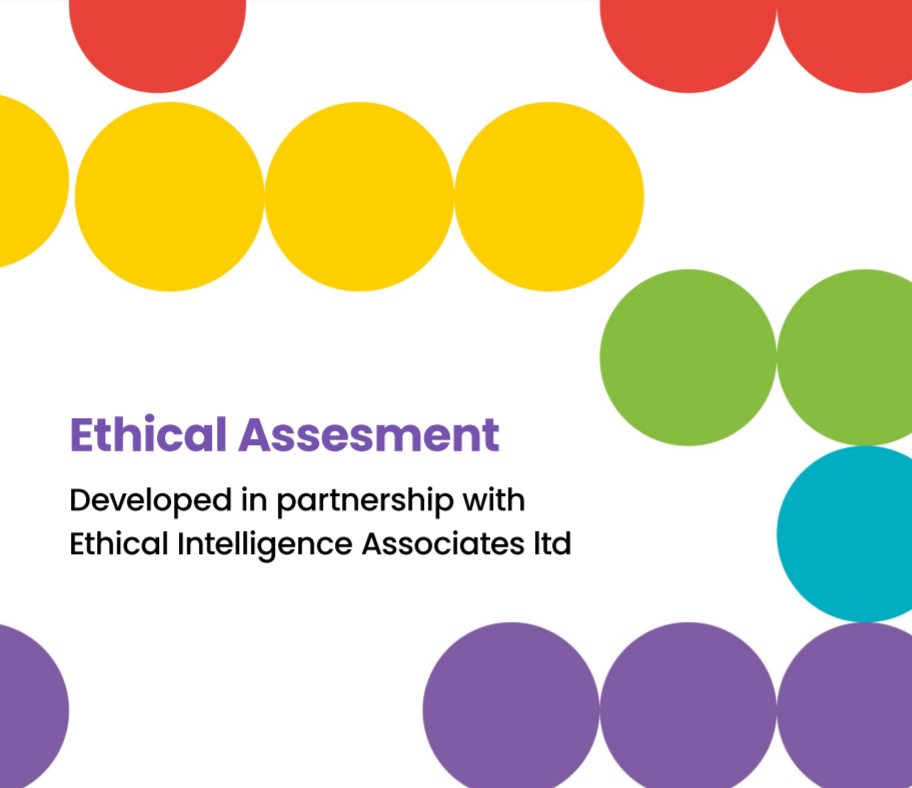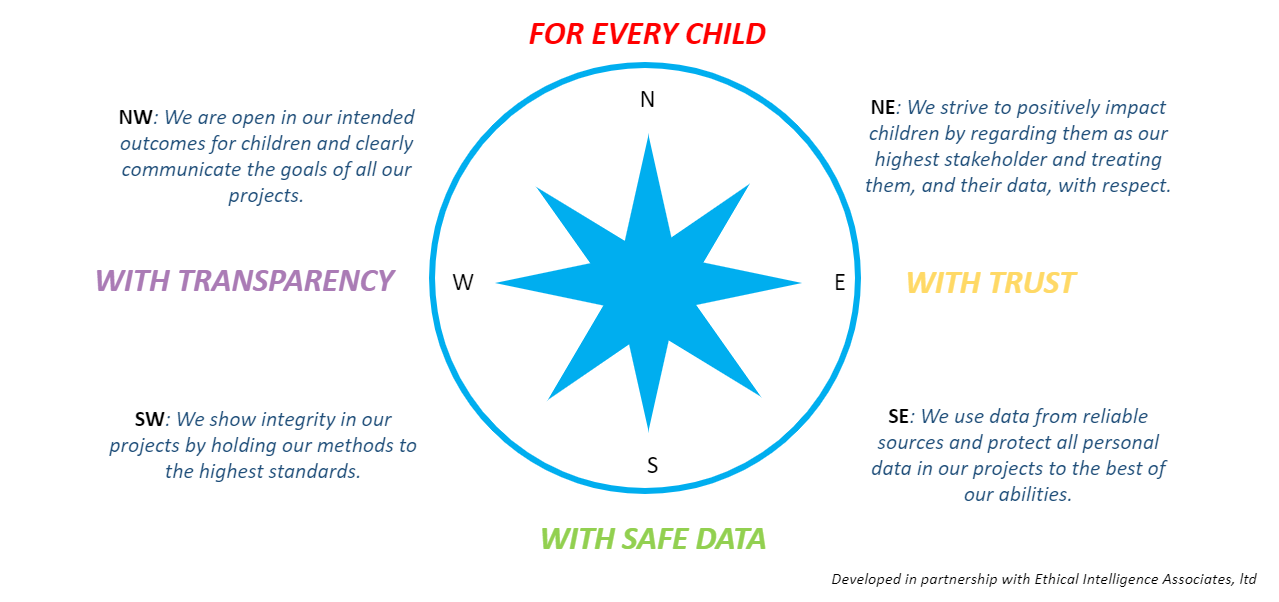Our Ethical Assessment is Now Live!
We are delighted to publish our ethical assessment which captures the unique challenges posed by working on data projects for children.
At the Data for Children Collaborative with UNICEF, we are committed to delivering projects in the right way and for the right reasons. As a result, we have dedicated a significant amount of time to developing and finalising our ethical assessment which captures the unique challenges posed by working on data projects that benefit children.
In the current technological landscape, we are seeing an increase in vague and superficial ethical statements or guidelines that might be difficult to implement or have little impact on day-to-day activities. We wanted to produce an accessible and user-friendly ethical toolkit that our project teams can engage with over and over again throughout the project lifecycle. In short, we weren’t looking for our ethical assessment to be yet another tick box exercise.
Our objective was to provide an opportunity for project teams to reflect on the material consequences of their actions, and how their work will have real impacts on children’s lives. With a consistent focus on children’s rights and ensuring that children are always the priority stakeholder, it is made explicit that it is our responsibility to always put the needs of children above any project requirements. The structure of the document encourages the user to take a step back from their project goal and carry out an in-depth assessment of potential positive and negative impacts on children. By highlighting and making teams aware of any risks, we can work alongside them to create mitigation strategies that will ensure that the project is being carried out ethically from the start.
The initial development of our ethics pack took place in the summer of 2019 with Ethical Intelligence Associates Ltd. Through a summer internship, a group of multidisciplinary postgraduate students from The University of Edinburgh worked alongside our delivery director, Alex Hutchison, to formulate an ethical charter and protocol for the Collaborative. We have further developed the content along with representatives from the Responsible Data for Children (RD4C) initiative to include their 7 principles of responsible data use. Our ethical assessment forms part of our safe data ecosystem, alongside data management and data protection policies and practices.
Our document consists of:
Compass
This represents our guiding principles – For Every Child with Trust, Transparency and Safe Data - that help us to ethically navigate our projects. These are steadfast and unchanging, and remain at the core of everything we do.
Road Map
This makes up the main part of the ethical assessment, the questions. They are split across critical project stages – Start, On the Road, Destination – and cover a wide range of important topics, from project initiation and data use to communicating results.
Highway Code
The Highway Code is a compilation of useful information, exemplar answers and tips to help the user as they work through the document. It details specifics about children’s rights and how to incorporate them into your project aims, as well as guidance on how to begin thinking through the questions.
Safeguarding Statement
All participants in our projects will undertake child safeguarding training through the Collaborative. The safeguarding statement is a document that participants will sign to show they have completed the training and understood the appropriate reporting procedures should they encounter any child safeguarding issues throughout their project.
Safeguarding Training
The safeguarding training pack is tiered based on an individual’s level of contact with children and level of access to data. It aligns to UNICEF’s safeguarding training and equips project teams with the necessary knowledge and understanding of safeguarding issues and reporting strategies.
Driving License
On completion of the ethical assessment and safeguarding training, individuals will be required to sign a ‘Driving License’ which confirms that, above all, they pledge to always put children, their needs and their rights before the requirements of the project. This is us giving them the green light to go ahead and get started!
You can find out ethical assessment below – have a browse and let us know what you think @dataforchildren on Twitter!


